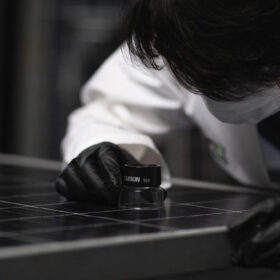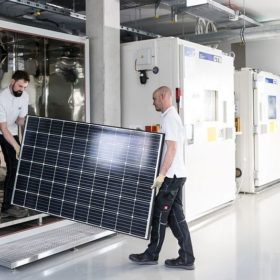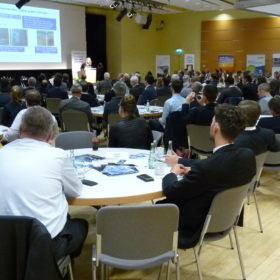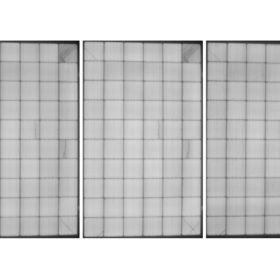Weekend Read: Temper tantrum
Reports of broken module glass with no obvious cause have begun to crop up at large PV projects. Module design, glass manufacturing, and interactions in the field between modules and trackers are at play and a clear solution has yet to emerge. Early signs suggest an update to certification standards may be needed.
Raising the temperature on module standards
Scientists in the U.S. laid out the rationale behind new PV module testing specifications published last year, which aim to better take into account the role of temperature in various types of performance loss. They suggest a new ‘98th percentile’ approach to measuring module operating temperatures, which would offer system designers a better understanding of the module’s performance in a particular ‘micro-environment’.
New three-step module testing from TÜV Rheinland
German standards body TÜV Rheinland is introducing a new testing and certification program for pv modules. The program incorporates component specific tests and ongoing, random testing of running production lines. Hanwha Q Cells assisted in the development of the program, and this week announced it is the first manufacturer to receive the new Quality Control PV Certification.
Preventing PID at 1500 volts
Scientists in Germany have developed a “heavy duty” test to provide insight into the long term effects of potential induced degradation in PV modules. The tests go well beyond those established by IEC standards and seek to guide manufacturers and investors on the best choice of materials – encapsulants in particular – when it comes to long term PID resistance.
Proving perovskite reliability
A new paper published in Nature claims that scientists have reached a consensus on the procedures for the testing of perovskite cells, which they say will lead to better reproducibility and comparability of data produced by different laboratories, and ultimately a better understanding of the degradation pathways affecting perovskite solar cells, and the most effective ways to mitigate them.
Bangladesh sets solar import standards
Complaints about sub-standard, cheap PV imports from China – and notably, India – have been heeded by Dhaka, which has issued a requirement for modules, inverters, charge controllers and batteries to attain IEC electrical standards.
Value of local manufacturing demonstrated, utilization up but still a long way to go
Indian module manufacturers are gearing up for an end-of-year surge in solar project procurement and hoping their investments in incorporating global manufacturing benchmarks will translate into enhanced sales.
Tuesday webinar: New test for microcracks will ‘push the industry to exceed benchmarks’
A new test design from the University of Central Florida has challenged modules with different cell technologies. The results show advantages for the heterojunction modules tested. Here we discuss the new method with its designer.








